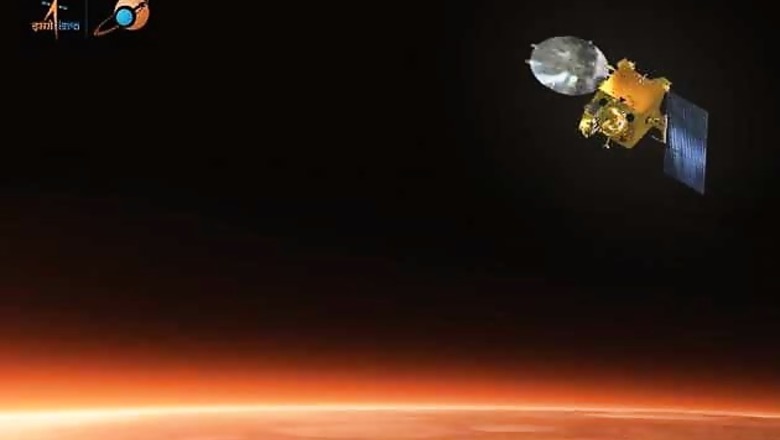
views
Bangalore: After the Mars orbiter spacecraft's successful encounter with comet Siding Spring last week, a major hurdle was over and the satellite is now in a normal phase of the mission to proceed with other experiments, ISRO said on Wednesday.
"One thing that was quite satisfying was the satellite survived this comet, there was absolutely no problem...; it happened between October 19 and 20th, it has been about ten days since then, things are going on very correctly as planned," ISRO Satellite Centre (ISAC) Director SK Shivakumar said.
Speaking at the pre-event press meet of Engineers' Conclave, he said, "We are very satisfied with the way in which we have manoeuvred the satellite and how it behaved pre and post manoeuvre, and how it survived from the comet. With that, one major hurdle is really finished now we are more concentrating on the experiments we are trying to do."
"Things are going as per schedule, things are very clear for us and we are conducting the experiments as planned. With that we feel it is at normal face of the mission, and we can certainly hand over the satellite to our ISTRAC friends for next six months minimum, beyond that it will be really bonus to all of us," he said.
The comet, known as Siding Spring (C/2013 A1), made its closest encounter with Mars on October 19th midnight for which ISRO had repositioned its Mars Orbiter satellite to avoid collision. ISRO along with Indian National Academy of Engineering is organising "Engineers'Conclave- 2014" (EC-2014) from October 30 to November 1 in Banglore.
The purpose of the event is to provide a platform to all professional engineers/scientists of the country to address some of the major engineering challenges relevant to society and to suggest suitable engineering solutions. K Radhakrishnan, Chairman, ISRO/Secretary, Department of Space is the Chair and Dr Baldev Raj, President, INAE/Director, National Institute of Advanced Studies, is the co-chair of Engineers' Conclave-2014.
Outlining the GSAT launches, Shivakumar said, "basically GSAT-16 will go on December 4 Kourou in French Guiana and then next will be GSAT-15, along with that we are preparing GSAT-18 and 17 in the same order. We feel that by the end of next year we have to send 18 and early 2016 we have to send 17."

















Comments
0 comment